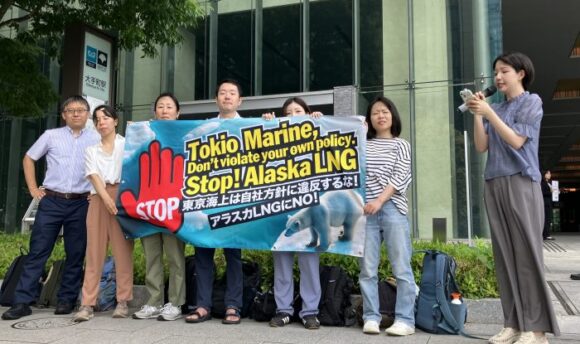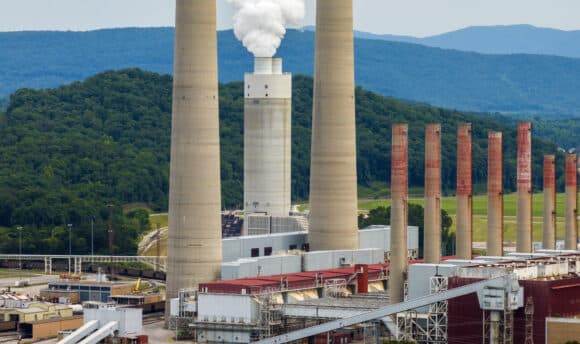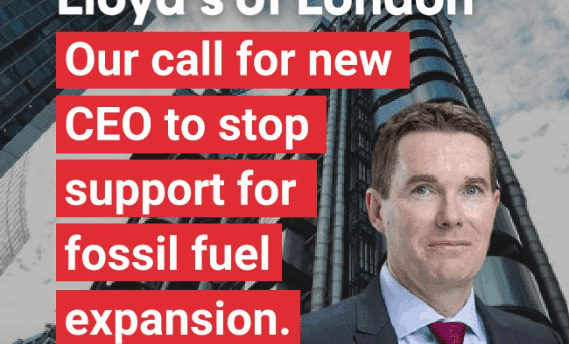In November 2020, Samsung Fire & Marine became the first major Asian insurance company to publicly announce an end to insuring new coal-fired power plants. However, recent coal insurance data from Korea Electric Power Corporation’s (KEPCO’s) subsidiaries indicates Samsung F&M remains the biggest coal insurer questioning the validity and effectiveness of its coal policy.
2020 was the beginning of Korean companies cutting ties with coal, and Samsung was no exception. In October 2020, a member of the National Assembly, Greenpeace Korea and the Korea Sustainability Investing Form (KoSIF) published a report that traced Korea’s coal finance from 2009 to 2020. Data from the report identified Samsung insurance units as the largest coal financiers among the Korean private sector.
Under pressure from NGOs and investors, in November 2020, Samsung adopted a coal policy and announced it would no longer insure and invest in new coal projects. Civil society groups welcomed Samsung’s announcement, but also questioned its validity and requested the following further information on the details of the policy:
Does the coal policy include insurance cover for coal plants under development?
Will the company phase out insurance cover for existing coal projects as well?
Will its divestment policy follow the thorough criteria of the Global Coal Exit List?
Samsung F&M has yet to confirm the details of its coal policy and these questions remain unanswered. This tactic of no response is not isolated to Samsung F&M. Samsung C&T, the construction & trade wing of the Samsung conglomerate, also failed to respond to the NGO request to close loopholes in its coal exit policy.
It didn’t come as a surprise to find out that Samsung F&M remains the largest coal insurer in Korea. On June 7th, the Korea Beyond Coal campaign released the insurance data from coal plants of KEPCO’s subsidiaries and called on 11 Korean insurers to stop underwriting the construction and operation of new coal-fired power plants and phase out existing coal insurance. The campaign will publish the responses of each insurer on its website on June 21st.
And according to this data, the total insurance cover Samsung is providing to coal plants is approximately 13.5 billion USD, the largest among Korean insurers. Samsung was also identified to have provided coverage for 3 coal plants under development, including the controversial 2,100MW Samcheok Blue Power Plant. This project is considered the last coal project in Korea and if constructed by 2024 and operated for 30 years, its estimated greenhouse gas emissions is 390 million tonnes.
“Samsung’s coal insurance policy is insufficient because it only excludes ‘construction insurance for new coal projects’ which no longer exists. Samsung should exclude all insurance related to new coal and come up with a concrete plan to phase out its coal insurance.”
The absence of accountability in Samsung’s coal policy extends to some of its other financial units. Early this year, asset managers representing nearly 90% of Korea’s bond market pledged to not invest in Samcheok Blue Power. Samsung Asset Management was not one of them. The company declined to confirm its position on the project and instead requested that the NGOs refer to its coal policy announced last year.
Despite pledging to strengthen its coal policy by no longer investing in new coal-power related business, Samsung Life Insurance has been identified as a shareholder of Adani Ports and Special Economic Zone, a company involved in the development of the controversial Carmichael coal project. This is not the first time one of Samsung’s financial units was scrutinised for its investment links to Adani. In July 2020, NGOs called on Samsung Securities to stop financing Adani’s Abbot Point. Soon after, the firm vowed to end its financing for any of Adani’s coal projects.
With these new findings, the integrity of not only Samsung F&M’s coal policy, but the coal policies and broader ESG strategy of Samsung Group’s financial units must all be reassessed.
Moving away from coal would be the right business decision for Samsung as the future of coal looks increasingly grim in Korea. In May, Korea Ratings downgraded the credit ratings of 3 coal projects – Goseong Hai, Gangneung Anin, Samcheok – from ‘stable’ to ‘negative’. Korea Ratings attributed the downgrades to the uncertainty in the feasibility of these projects and the weakening financial viability of coal.
Samsung must also not overlook the reputational risk its coal business brings to the conglomerate. It’s hypocritical for Samsung Electronics to boast a ‘PlanetFirst’ campaign when Samsung financial units continue to support the coal industry. The company needs to ask itself whether its millions of customers, mostly young people whose futures are threatened by climate change, will approve of its coal business. It’s time for Samsung to walk the talk and deliver on its climate commitments.



